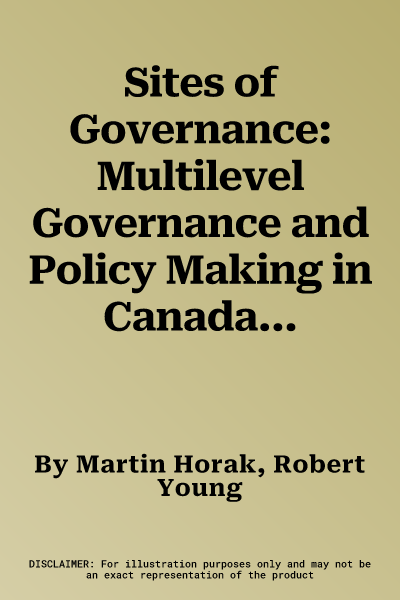Policies forged by all levels of government affect the lives of urban
residents. Contributors to this volume explore how intergovernmental
relations shape urban policies and how various social forces are
involved in - or excluded from - the policy process. Focusing on diverse
policy fields including emergency planning, image-building, immigrant
settlement, infrastructure, federal property, and urban Aboriginal
policy, Sites of Governance presents detailed studies of the largest
city in each of Canada's provinces. Drawing on extensive documentary
research and hundreds of interviews, contributors offer rich, nuanced
analyses and a wealth of policy cases, ranging from preparation for the
Vancouver 2010 Olympics to the development of innovative immigrant
settlement programming in Winnipeg. Dominant themes include the
importance of resources and formal jurisdiction in multilevel policy
making, and the struggle for influence between business interests and
other social forces. Essential reading for anyone concerned with the
quality of urban life in Canada, Sites of Governance offers important
insights about how multilevel governance works in Canadian cities.
Contributors include Laurence Bherer (Université de Montréal), David
Bulger (University of Prince Edward Island), Christopher Dunn (Memorial
University), Robert Finbow (Dalhousie University), Joseph Garcea
(University of Saskatchewan), Pierre Hamel (Université de Montréal),
Martin Horak (University of Western Ontario), Thomas Hutton (University
of British Columbia), Christopher Leo (University of Winnipeg), Greg
Marquis (University of New Brunswick, Saint John), Byron Miller
(University of Calgary), Cecily Pantin (Memorial University), Alan Smart
(University of Calgary), Donald Story (University of Saskatchewan), and
Robert Young (University of Western Ontario).

